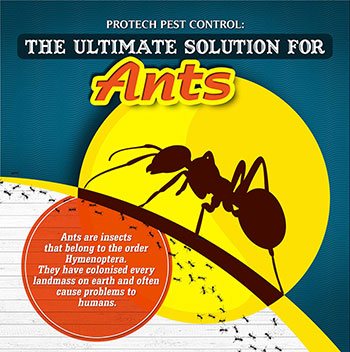Tips For Maintaining Exterior Parasites Away From Your Garden
Tips For Maintaining Exterior Parasites Away From Your Garden
Blog Article
Post Developed By-Lauritsen Hartvig
Envision your garden as a haven, a place of peace and elegance. Nevertheless, the presence of outdoor parasites can rapidly disrupt this idyllic image. Suppose there were https://how-much-does-snake-remov73950.izrablog.com/27076601/exactly-how-to-pick-the-right-termite-control-solution-for-your-home yet reliable ways to keep these undesirable site visitors at bay and secure your yard sanctuary? By complying with a couple of sensible pointers and implementing natural methods, you can create an unified exterior area where your plants can thrive undisturbed.
Natural Insect Deterrents
To keep pests away from your garden naturally, plant aromatic natural herbs like mint and lavender. These fragrant plants not only include appeal to your garden but likewise act as efficient bug deterrents. Insects like mosquitoes, flies, and even some garden-damaging pests are repelled by the solid scents discharged by these natural herbs. Simply putting them strategically around your garden can assist produce a natural barrier against unwanted parasites.
In addition to mint and lavender, consider planting other herbs like rosemary, basil, and lemongrass to further enhance your yard's pest-proofing abilities. These natural herbs not just function as natural repellents but additionally have the included advantage of working in cooking or crafting homemade solutions.
Strategic Plant Placement
Take into consideration the design of your yard and the types of plants you need to strategically place them for optimum pest-proofing effectiveness.
Beginning by organizing plants with comparable resistance to bugs with each other. By doing this, you can produce a natural obstacle that discourages bugs from spreading out throughout your yard.
Additionally, putting pest-repelling plants like marigolds, lavender, or mint near more prone plants can help shield them. http://www.sacbee.com/news/local/crime/article104439706.html , such as sunflowers or corn, can act as a shield for shorter plants versus insects like rabbits or ground-dwelling insects.
Remember to leave adequate space in between plants to improve air circulation and minimize the danger of diseases that pests may carry.
Additionally, consider planting strong-smelling natural herbs like rosemary or basil near at risk plants to confuse insects' detects and make it harder for them to locate their targets.
Efficient Bug Control Methods
For combating garden bugs properly, executing a multi-faceted parasite control method is important. Begin by urging all-natural killers like birds, ladybugs, and hoping mantises to aid keep pest populations in check. Presenting plants that bring in these useful insects can assist in pest control. In addition, practicing good yard health by removing particles and weeds where bugs could hide can make your garden much less welcoming to unwanted site visitors.
Think about utilizing physical barriers such as row cover materials or netting to shield prone plants from parasites like caterpillars and birds. Applying natural chemicals like neem oil or insecticidal soap can also work against particular pests while being much less dangerous to advantageous bugs and the environment. It's important to revolve your crops each period to stop the build-up of parasite populations that target specific plants.
Consistently check your plants for signs of parasite damage so you can take action immediately. By integrating these techniques and staying watchful, you can properly manage garden parasites and enjoy a thriving, pest-free garden.
Conclusion
So, there you have it - with the ideal techniques, you can keep pesky exterior parasites away from your garden and aid your plants flourish.
Did you recognize that planting mint has been shown to fend off mosquitoes and various other pests, decreasing the requirement for unsafe chemicals by as much as 60%?
By integrating natural deterrents and smart growing strategies, you can develop an attractive and pest-resistant garden sanctuary for you to take pleasure in.
